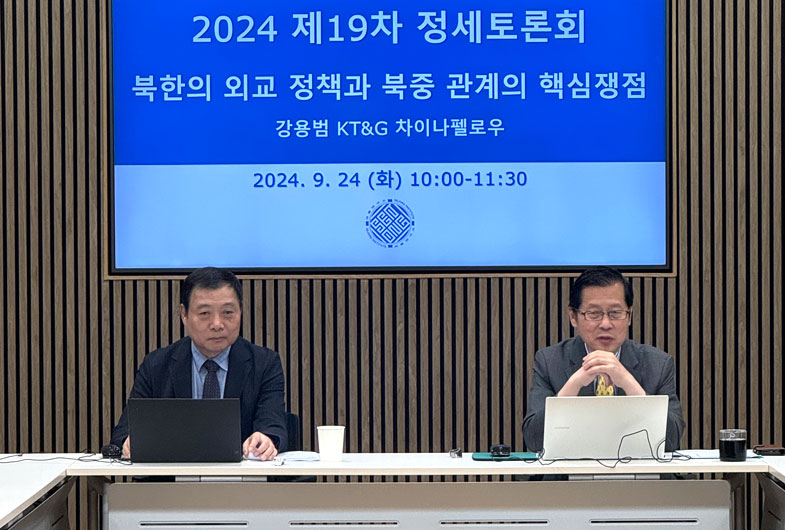On September 24th, Yongbeom Kang, China Fellow, gave a presentation on "North Korea's Foreign Policy and Key Issues in North Korea-China Relations" at the 19th Colloquium.
The discussion was moderated by Seong Chang Cheong, Director of the Center for Korean Peninsula Strategy
North Korea's foreign policy is strongly ideologically oriented, throughout the Cold War and the post-Cold War era, and Juche ideology and the politics of the DPRK's military plays an important role in the formulation and implementation of North Korea's foreign policy.
North Korea-China relations are the core of North Korea's foreign policy and the most important bilateral relationship. During the Cold War, North Korea and China were perceived as a special relationship of “unbreakable bonds.” However, after the Cold War, the bilateral relationship between the two countries has repeatedly been estranged and restored, and is now considered to be changing into a normal state-to-state relationship.
North Korea's nuclear program is the only area of disagreement between China and North Korea, and is the obstacle to the development of stable and cooperative relations between the two countries. China strongly opposes North Korea's nuclear weapons development policies and actions, and has been constantly persuading and working to denuclearize North Korea.
As North Korea and Russia have been rapidly moving closer with the war in Ukraine and the “Anomaly in North Korea-China relationship”, Chinese foreign policy toward North Korea has been receiving a spotlight. In particular, as U.S. and China have entered a “New Cold War,” which has destabilized inter-Korean, ROK-Russian, and Kor-China relations. Under these circumstances, China's future policy toward North Korea and its stance on the North Korean nuclear issue are being called for certain changes.
